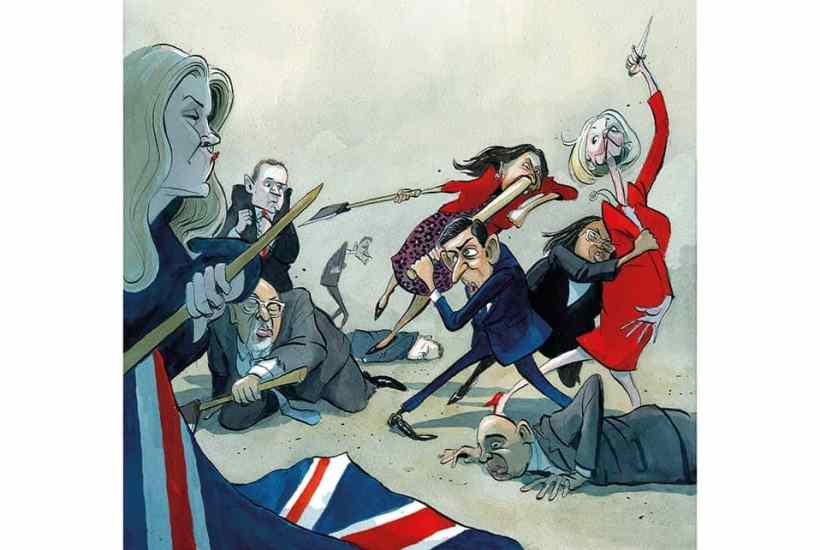As Tory MPs appear to descend into a panic of buyers’ remorse over the election of Liz Truss, they would be well advised to take a deep breath and reflect upon the absurdity of removing a leader after six weeks. As they do so, they might find it instructive to look across the sea to Australia to see the folly of constant leadership turmoil and the ever more lethal poison it injects into the bloodstream of political parties.
Already a subscriber? Log in
Subscribe for just $2 a week
Try a month of The Spectator Australia absolutely free and without commitment. Not only that but – if you choose to continue – you’ll pay just $2 a week for your first year.
- Unlimited access to spectator.com.au and app
- The weekly edition on the Spectator Australia app
- Spectator podcasts and newsletters
- Full access to spectator.co.uk
Or




















Comments
Don't miss out
Join the conversation with other Spectator Australia readers. Subscribe to leave a comment.
SUBSCRIBEAlready a subscriber? Log in